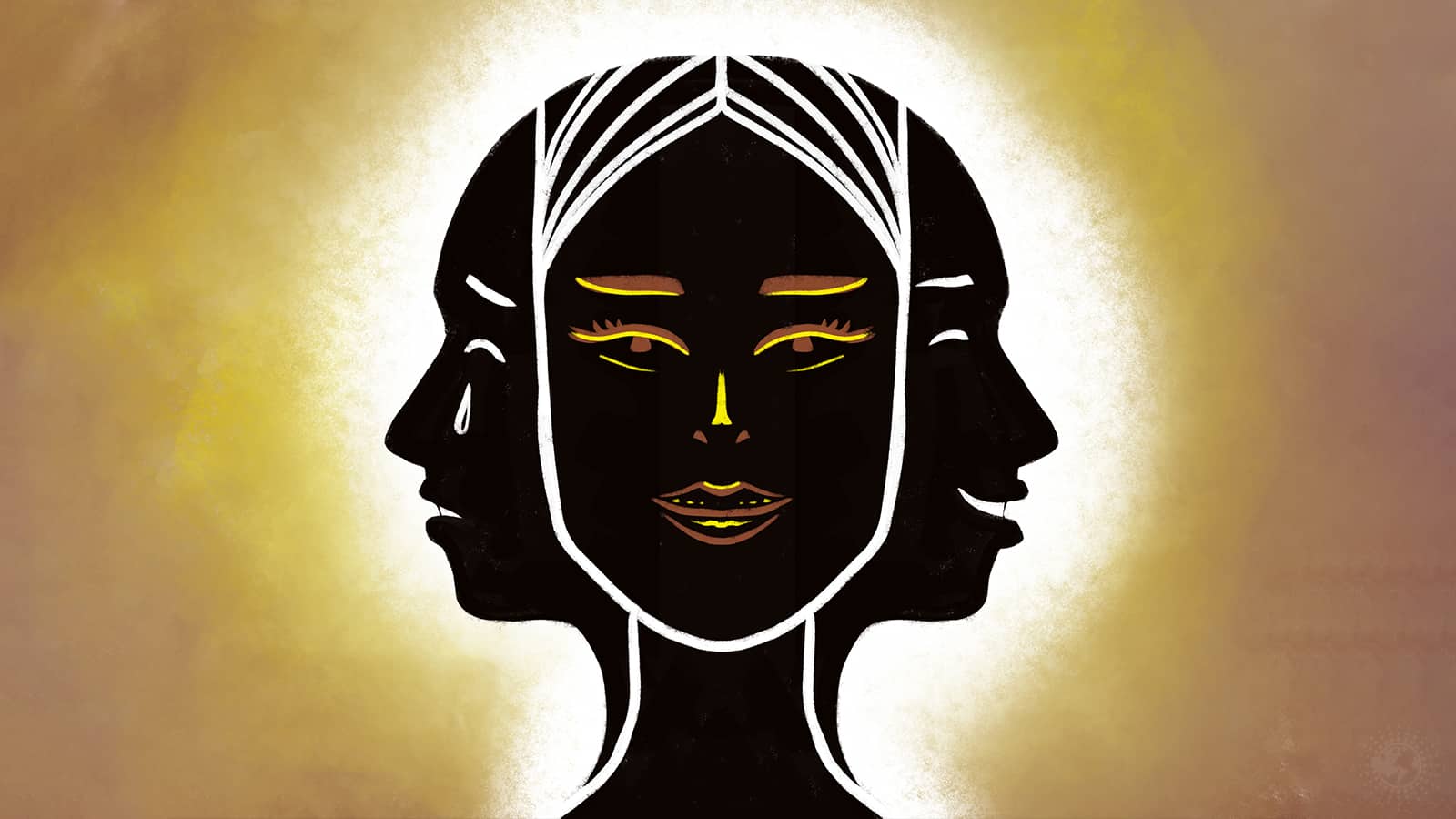One of the most perplexing mental health illnesses is bipolar disorder. Bipolar symptoms will cause you to shift from periods of highs with lots of energy to lows with mania.
According to the National Institute of Health, this condition causes you to have extreme changes in your behaviors and moods, as well as affecting your sleep and your daily activities.
The baffling part of this disorder is that the severity and frequency of these shifts are different for each person. Thankfully, there are many behaviors that you can utilize to help manage this mental illness. When you learn to modify your actions, you can reduce your symptoms.
Behaviors to Help Bipolar Symptoms
It all comes down to coping skills and strategies that will help you handle this illness. Sadly, there is no cure or quick fix for this condition, but by using a few tips and tricks, you can enhance your quality of life. Here are some of the best behavioral modifications to help you live with bipolar disorder.
 1. Utilize Counseling
1. Utilize Counseling
When it comes to bipolar symptoms, one of the best ways to combat your feelings is through counseling. Therapy is an excellent tool because it helps you change how you think and feel about your illness and learn practical ways to cope.
Using specific types like cognitive and dialectical behavioral therapy can help give you specific tasks to do when you feel mania or those euphoric feelings creep in. Since treatment can be catered to your particular needs and challenges, it’s a unique experience for each person. It’s a valuable part of your treatment program, and one that a person suffering from bipolar should utilize.
2. Never Isolate
An adage states that no man can be an island all to himself, and this statement is true. The symptoms that come with bipolar disorder will urge you to isolate yourself from others. You may fear judgment or them noticing something is off.
So, it’s easier to lock yourself in your home or room rather than to deal with people who don’t understand. These fears are unwarranted. You don’t need to lock yourself away as you need a robust support system to manage this illness.
You need people to talk to that can help you in those times of depression or mania. While your medical team is an integral part of your support system, you also need family and friends to help you in your journey. Another excellent way to get assistance is by utilizing an online support group.
Discussing your feelings and symptoms with others fighting the same thing can be quite therapeutic. Mental health issues like bipolar cause you to feel all alone, so you need the support of others suffering from the same problem. The relationship you form can be quite helpful and push you to keep going.
3. Avoid Self Medicating
One problem that many people with bipolar disorder fall into is that they want to self-medicate their symptoms away. It’s never that easy, nor is it okay to turn to drugs or alcohol to try to fix the chaos in your mind. Substance abuse is high among people with this mental illness, and it can cause more problems than the original complaint.
A study published by the National Institute of Health stated that as many as 50 percent of those who have bipolar disorder also have a comorbidity of substance abuse. Most people don’t realize that these chemicals alter the brain’s function even more so, and it can make your condition worse.
If you feel that you need drugs or alcohol to cope with bipolar, you need to address it in therapy.
4. Decrease Your Stress
Did you know that stress can be one of the biggest triggers for those who have bipolar disorder? Sit down with a pen and paper and identify your life areas that are causing you strain. You might identify a relationship or spouse, or it may be your job that is causing you to feel overwhelmed.
Now that you’ve identified your list, write down ways beside it that you can combat this issue. For instance, if your workload is too much, why not ask your boss for fewer hours or to lighten your load? Set your mind to be solution-driven rather than ruminating on all the issues.
When you begin to attack these stressors one by one, you will find your shoulders feel lighter as your stress levels decrease.
5. Create a Routine
Establishing an effective routine is a great way to stay on track. Once again, a journal becomes a handy tool to help you when some days are worse than others. Having routine keeps you organized and makes you accountable.
Many people find comfort in knowing bedtime is at 11 pm, and breakfast is at 8 am. Consequently, when their schedule alleviates from this routine, it can send them into a tailspin. Sleep is often a significant issue for those with bipolar as you either sleep too much or not enough.
However, you should make sure that you get the proper amount of rest, as insufficient sleep can trigger your mental health condition. Additionally, when you start noticing changes in your sleep pattern, it can indicate that you’re going into a period of mania or depression.
 6. Diligently Monitor Your Feelings and Bipolar Symptoms
6. Diligently Monitor Your Feelings and Bipolar Symptoms
One of the critical methods of managing your bipolar symptoms is paying attention to what you feel. If you have mood fluctuations or symptoms, you should journal these to go over them with our therapist.
Additionally, you should know when the signs are indicating a manic episode or a break from reality. The key is to catch things before they get to the dangerous levels so something can be done. A journal or chart can help you see any shifts in your moods or behaviors that warrant help.
7. Create an Emergency Strategy
What should you include in this plan? It should have a list of people to call when you experience specific symptoms and things to remind yourself of when you feel out of control. Having specific support people to help with different aspects of this disease is advisable.
8. Discover Coping Methods for Bipolar Symptoms
It’s not easy to deal with bipolar symptoms, but you can find healthy ways to handle all the challenges that it brings. The goal is to stay mentally and physically fit. Part of wellness is to have coping strategies in place.
Keep in mind what works for one person might not work for you. You may need to try several different methods to find the coping skills that work for you.
9. Manage Your Diet and Exercise Routine
More studies are being done about the connection between mental illness along with diet and exercise. When you work out, you boost your mood, so this can be an excellent way to manage bipolar symptoms. Many people find that they can turn to exercise when they start to feel a manic episode begin, and they can combat it naturally.
Additionally, diet is just as important as exercise. Cut out things like sugars, high fats, caffeine, and starches, and you will see what a positive effect it has on your body and your mood.
10. Join in on Your Treatment Plan
To learn to manage this condition and control the symptoms, you need to be an active participant in your treatment plan. Write down any questions you have and ask them at your counseling session or any appointments with your doctor. You must understand all the various ways that this mental illness impacts your life.
One of the keys to dealing with this disorder is learning about you. By recognizing your bipolar symptoms and identifying your triggers, you can avoid embarrassing and dangerous situations. Gather all the knowledge you can on the matter to be a partner in your treatment plan.
Another critical element in managing this condition is having a team working with you to communicate with and trust. If you don’t feel like you can talk to your therapist openly and honestly, you should find someone easy to talk to. Remember, this isn’t about picking a friend; instead, it’s about choosing someone to help you on this journey.
 Final Thoughts on Decreasing Bipolar Symptoms
Final Thoughts on Decreasing Bipolar Symptoms
Living with bipolar disorder is not easy, even on a good day. Thankfully, there are many ways that you can decrease the bipolar symptoms you feel to make your life more enjoyable. Incorporating a few habits into your life, like journaling your symptoms and increasing your support system, can make it easier to handle the ups and downs of this mental health issue.
You must realize that you’re not alone in this fight. According to the National Institute of Health, there is more than 2.8 percent of the population, or 5.7 million adults, suffering from bipolar in this country. Some people would love to reach out to you, and you could use their support too. Remember, man isn’t an island all alone, you need the comfort of others to handle this mental difficulty.

















